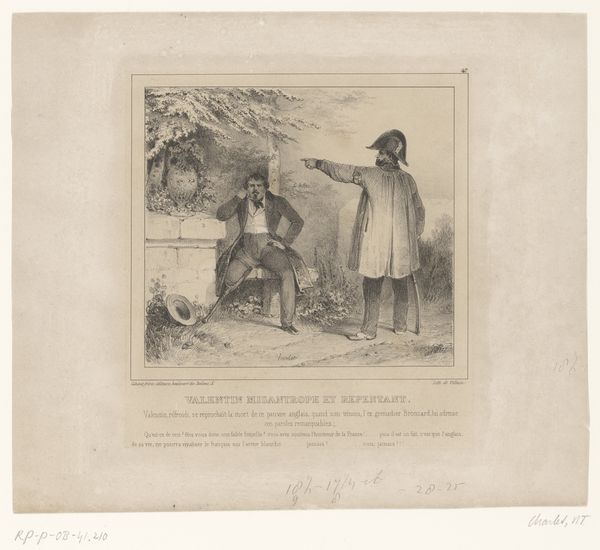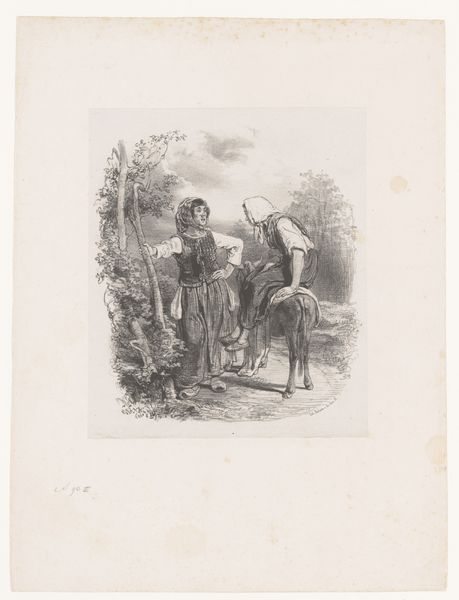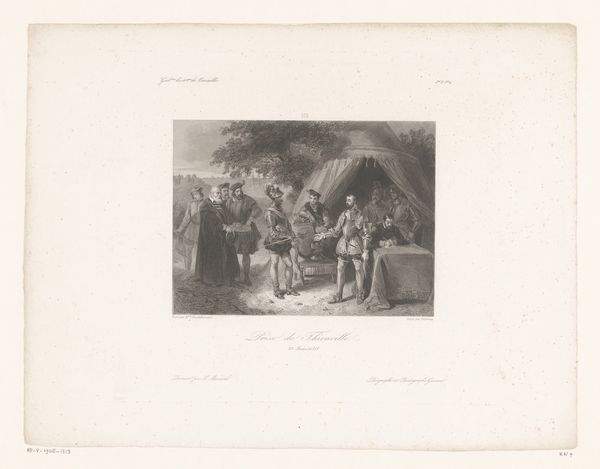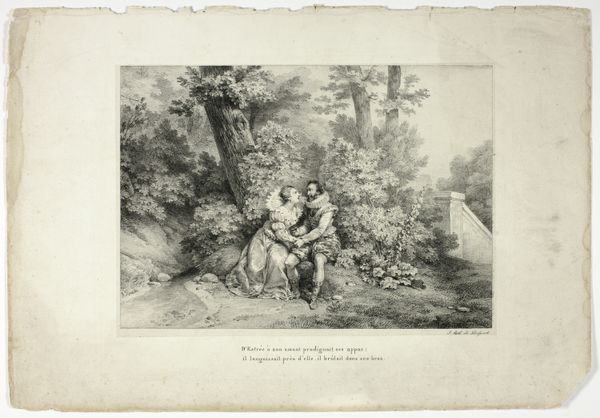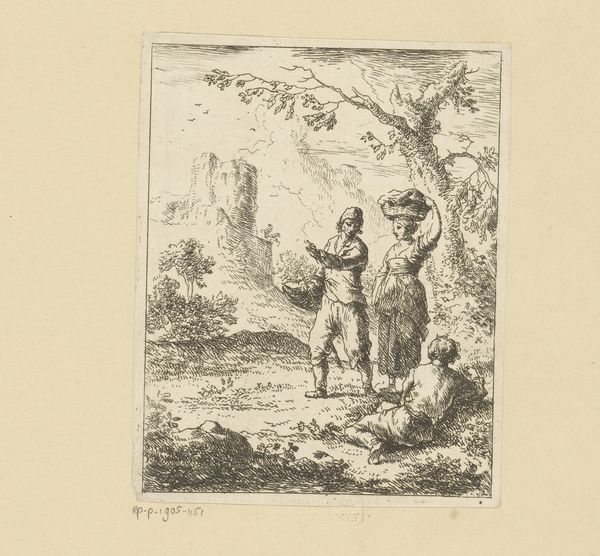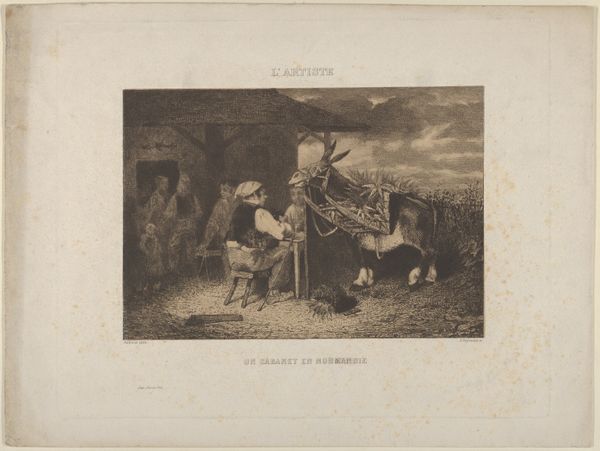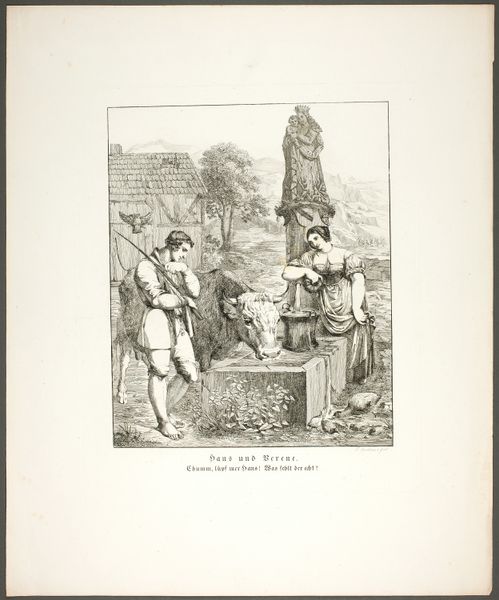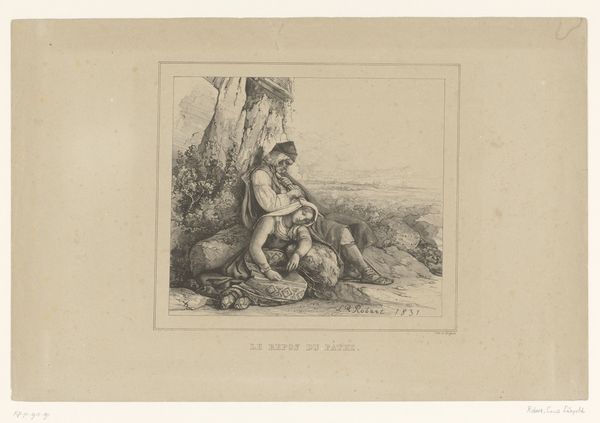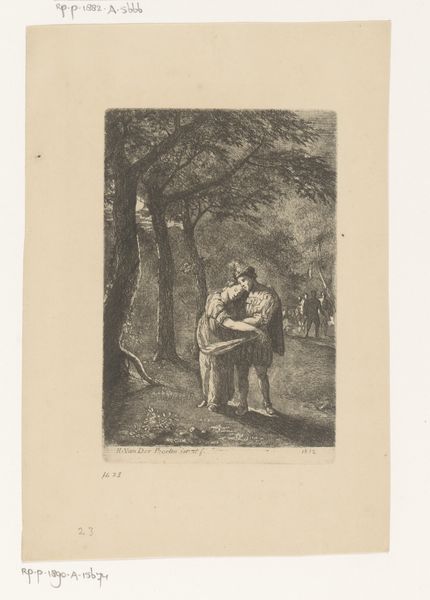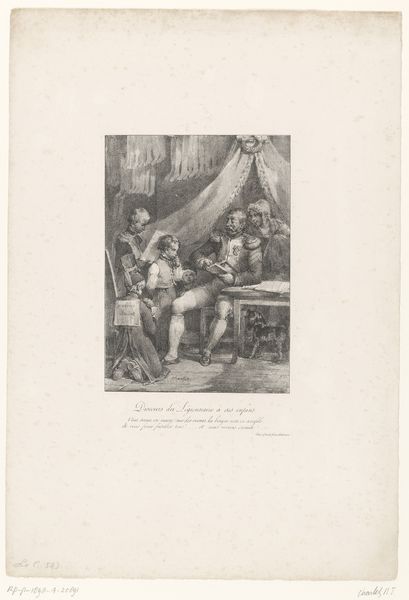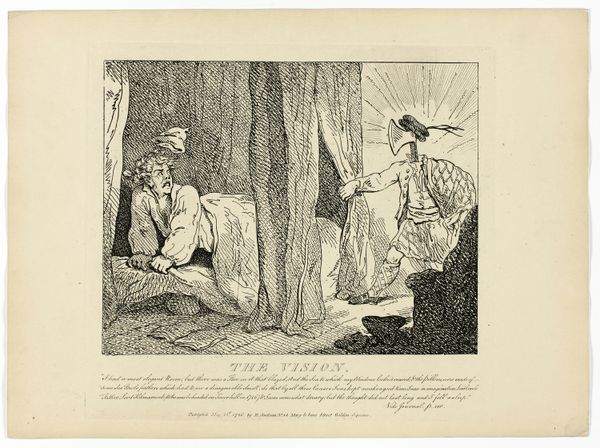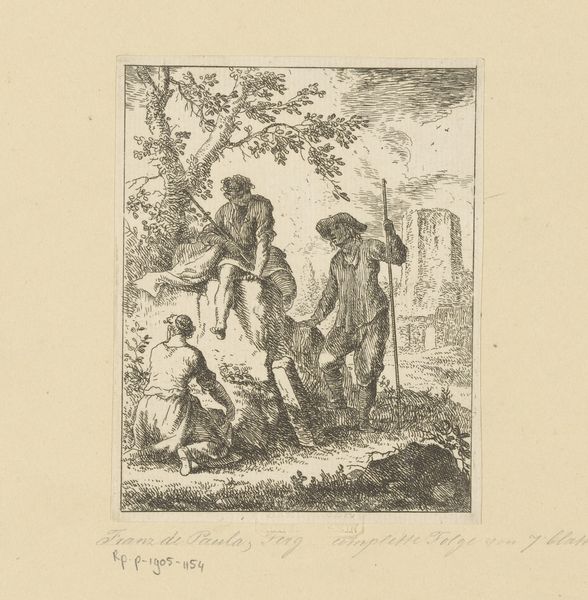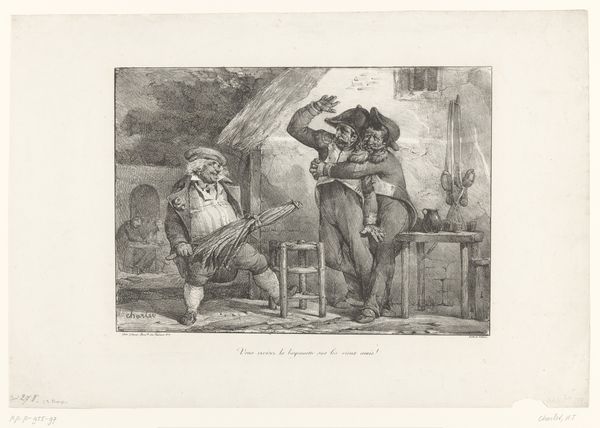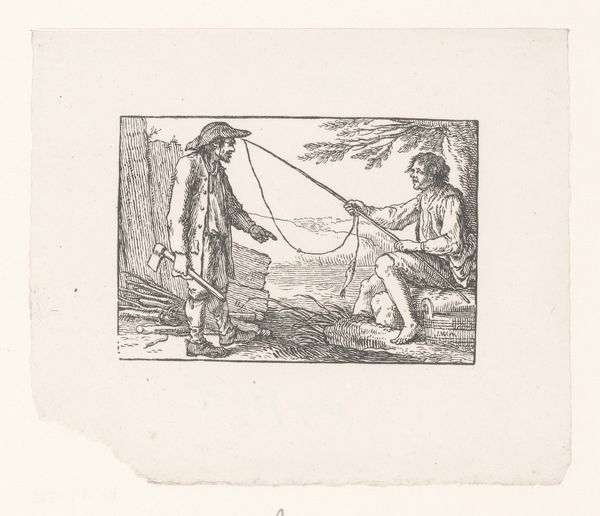
drawing, lithograph, print, etching, paper, engraving
#
drawing
#
narrative-art
#
lithograph
# print
#
etching
#
figuration
#
paper
#
romanticism
#
france
#
history-painting
#
engraving
Dimensions: 189 × 259 mm (image); 203 × 272 mm (primary support); 290 × 420 mm (secondary support)
Copyright: Public Domain
Editor: This is Horace Vernet’s “Il quitte avec regret ce vieillard vertueux…", a print made around 1825, held at the Art Institute of Chicago. The textures created by the etching and engraving are amazing! It looks like a poignant farewell scene, almost like a theatrical stage. What stories do you think the imagery tells? Curator: This image speaks to the visual language of Romanticism, laden with symbols of duty, faith, and sacrifice. Notice how the artist contrasts the youth and implied vigor of the departing figure with the aged, cloistered elder. It’s about the tension between earthly calling and spiritual commitment, a recurring theme in post-Revolutionary France. What specific visual cues lead you to your observation about its "theatrical stage"? Editor: Well, the positioning of the figures feels very deliberate, like a tableau vivant. Also, there's the shadowy background, almost like stage curtains framing the characters, and the way the light illuminates the figures in the center. Curator: Precisely! The 'curtains' are evocative, hinting at unseen forces or destinies at play. Look closer at the objects on the table to the left. Do those commonplace objects suggest anything beyond the immediate scene? Editor: I see some bowls, a jug, maybe a book... It seems like a simple meal, or perhaps remnants of one. Could it symbolize a last supper, of sorts, before the journey? Curator: Exactly. Food and drink as communion, the book implying knowledge and perhaps a passing of wisdom. Consider the figure in the background. He seems to be the man’s protector or squire, echoing a sense of purpose but less emotional vulnerability. He anticipates events beyond this immediate goodbye, but with his sword represents worldly duty in a material world. Editor: It's fascinating how even in a seemingly simple print, so many layers of meaning are embedded! It really enriches my understanding of Romantic-era art. Curator: Indeed. Each element invites us to contemplate deeper cultural values, and the visual choices amplify the emotional weight of the scene and time period, demonstrating that the emotional quality in the picture relies on a wealth of conventional signs, emblems, and motifs.
Comments
No comments
Be the first to comment and join the conversation on the ultimate creative platform.
